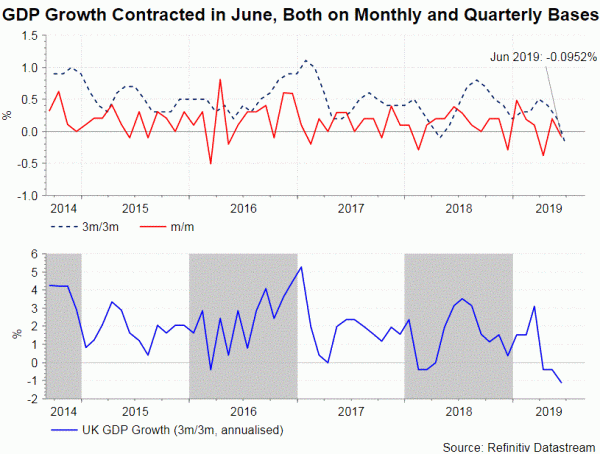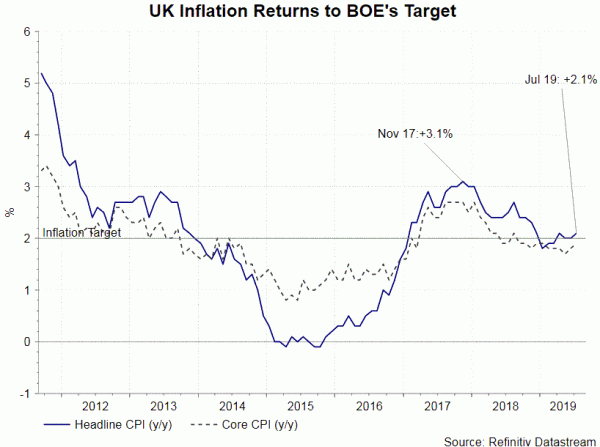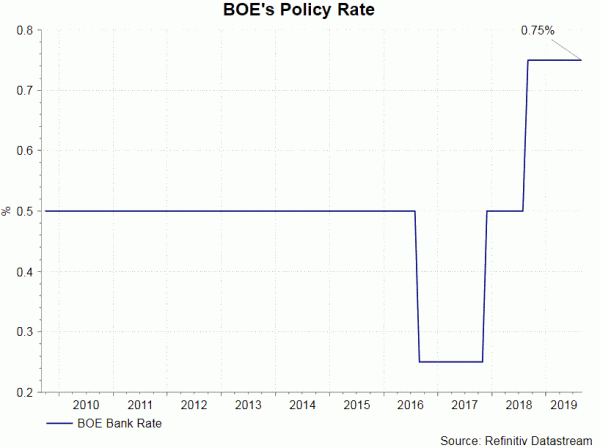The Brexit drama continues. The bill that allows MPs to take over the parliamentary business on September 4 was passed with a 328-301 vote. This has paved the way for debate on whether MPs reject a “no-deal” Brexit. This motion proposes that PM Boris Johnson would have to seek approval for extension of Article 50 to January 31, 2020, if the parliament rejected to leave the EU without a deal and no deal (Withdrawal Agreement) is approved by October 19. Boris Johnson then threatened that, if the bill is passed, he would propose to hold snap elections on October 15. The PM is scheduled to discuss with the EU about the deal on October 17.
Johnson’s strategy to seek a clear mandate to deliver Brexit through elections is not new. Recall that Theresa May, shortly after taking the office, called for snap elections in June 2017. Although opinion polls suggested strong leads for the Conservatives over Labors, the former won 317 seats, losing majority in the parliament. May eventually had to form a minority government with support from the DUP. Johnson’s call for snap elections is not without barrier. Opposition Labor Party has vowed to reject the bill unless the bill to extend Article 50 is passed. Whether Johnson can secure a two-third majority is questionable.
What happened on Tuesday suggests that a majority of MPs (including the 21 Tory rebels) opposes to leave the EU without a deal. We expect the bill to reject no deal Brexit will be passed. The next question is whether Johnson can succeed in calling for snap elections in mid- October. We don’t expect Labors to give it a green light. Another question, as well as the core issue of the Brexit drama, is whether a majority of MPs can approve a deal. 17 Labor MPs have noted that they would propose amendments to the “reject no deal bill”. They proposed that any extension should be used to secure a deal building on the existing Withdrawal Agreement.
The new PM has failed to offer a clearer outlook on Brexit. Risk of a no deal Brexit is delayed, but not removed. We expect British pound to remain volatile. Concerning the monetary policy outlook, the next move is more likely a rate cut than a rate cut. This is driven by global and domestic economic slowdown. Meanwhile, UK’s inflation has returned to levels close to BOE’s +2%. This has diminished the need to monetary policy tightening.



